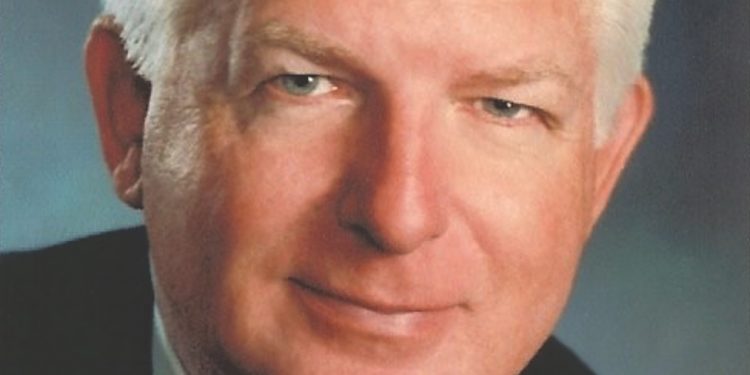In the virtual center of the city’s Entertainment District is a multi-lane bridge on Nolan Ryan Expressway crossing Johnson Creek. Likely, most of those reading this, know just where it is.
Following a dedication ceremony on May 9 it will be forever known as the “Senator Kim Brimer Bridge.”
For those who may not recognize Kim, what follows are some excerpts from a recent letter I wrote to Mayor Jim Ross and the members of the city council in support of their consideration of a tribute to Kim that provides some insight into the role of the former member of the Texas Legislature being honored on the occasion:
In all of the celebrations and stories of how our Texas Rangers Baseball Team became World Champions, there was a missing recognition of a fellow public servant without whom the whole day may not have been possible.
After the extraordinary outcome of the 1991 decision of a record number of Arlington voters approving the development of The Ballpark in Arlington, we still had no authority to implement the half-cent sales tax approved in that election.
It would require the governor and Texas legislature to amend the laws allowing local governments the use of a sales tax for the purpose our voters had supported.
As a member of the Texas House of Representatives, Arlington’s own Kim Brimer took the lead in crafting an amendment to the state law that authorized local governments to assess sales taxes, for limited purposes, provided they could get voters to approve any such proposal.
Since Arlington voters had already done that with a 65 percent margin of victory authorizing the development of what became The Ballpark in Arlington, Kim began the work of convincing his fellow legislators to include in those ‘limited purposes’ the development of a new ballpark for the Texas Rangers.
He ultimately crafted a provision in his proposed legislation that would limit any such new voter-approved authority in language that would make that possible only in counties that had two cities with populations in sizes that only existed in Tarrant County.
That provision meant that representatives across the state where such a ‘tax measure’ would not be possible, could conclude there was no reason for them to oppose the Brimer initiative.
The effort won overwhelmingly in both the House and Senate and obtained Governor Ann Richards’ signature with her declaration that the amended law was in keeping with “what the people wanted.”
Arlington then had the authority to proceed to create the half-cent sales tax that would provide funding for the city’s portion of the new ballpark that would ensure the Rangers would remain Arlington’s team.
Since the debt arranged by the sales tax was paid off in nine years – less than half the time originally proposed – the city became the first in Texas history to actually reduce a sales tax.
It also made that half-cent available to support both the Dallas Cowboy’s stadium and, later the development of Globe Life Field.
Interestingly, when other Texas cities saw Arlington’s success many wanted to use the same voter-authorized ability to build sports and recreational facilities for their communities benefit.
Kim, by then a member of the Texas Senate, again crafted legislation that would widen the authority throughout the state. And, it spread quickly.
I share this history to emphasize that Kim Brimer’s leadership was vital in keeping the Texas Rangers in Arlington, where they belong.
Now would seem an ideal time to find a way to permanently recognize Kim while the World Series Championship continues to be celebrated.”
So, that explains the May 9 dedication event. Serving as mayor during that period in our city’s history resulted in my name being identified along the linear park that passes under the bridge is somewhat symbolic of the dual roles we played together representing the people of Arlington.
They are the ones who authorized building The Ballpark in Arlington that set into motion the now $5 billion in economic development that has occurred as the Entertainment District that just keeps on growing and growing.

















